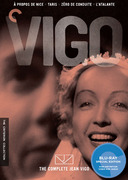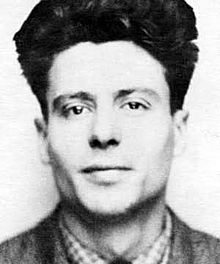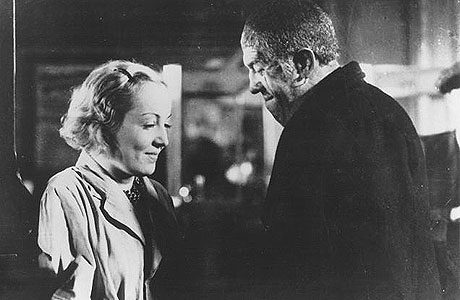 October’s reader giveaway, announced earlier this month, is Criterion’s anthology of French filmmaker Jean Vigo and a Chicago film fest T-shirt. To enter, just comment on any post this month. Here, critic Michael Wilmington discusses the director and his work.
October’s reader giveaway, announced earlier this month, is Criterion’s anthology of French filmmaker Jean Vigo and a Chicago film fest T-shirt. To enter, just comment on any post this month. Here, critic Michael Wilmington discusses the director and his work.
He died at 29: Jean Vigo, the spirit of youth, of art, of cinematic rebellion, of France between the wars. He was a citizen of the world cinema, even though he directed only four films: two documentary shorts, a featurette, and one feature, all of them to some degree commercial and critical failures. And yet Vigo lives.
The son of a revolutionary who died in a prison, Vigo helped ignite an artistic and cinematic uprising. He and his co-conspirators, Jean Renoir, Pierre Chenal, Julien Duvivier, and Marcel Carné, created Poetic Realism, beautiful stylized portrayals of marginalized, often doomed characters, such as criminals. This style of filmmaking, along with German Expression, greatly influenced film noir.
The look of Vigo’s films inspired 1940s and ’50s Hollywood. His great collaborator was the cinematographer Boris Kaufman, a poet of light, who later shot “On the Waterfront” for Elia Kazan and Sidney Lumet’s “12 Angry Men.”
Vigo’s works are records of the real – love and sex, wealth and poverty, French culture, French life as it was lived in the 1930s – and documents of the surreal, that mysterious land of our dreams.
He made movies about sunny resort cities and the bourgeoisie at play (1930’s “À propos de Nice), about a real-life Olympic champion swimmer (1931’s “Taris”), about schoolboys in revolt in a school run by monsters (1933’s “Zéro de Conduite”) and about two lovers and a wild old man on a barge on the river (1934’s “L’Atalante”).
“Zéro de Conduite,” a 44-minute featurette was based on Vigo’s memories of boarding school days, a nightmare of absurdities, tangled up with lyrical flights of freedom. The sarcastic treatment given the school’s bizarre academics is probably partly responsible for the film’s long banning in France (1933-45).
“L’Atalante” remains one of the most hypnotically beautiful and lyrical films ever made. Twice, in 1962 and 1992, “L’Atalante” was voted one of the 10 greatest films of all time in the Sight and Sound International film poll. It is now a national treasure in France.
Vigo died in 1934. His work was trashed and forgotten, then resurrected and restored a decade after his death, and seen all over the world. If you see these films, they will make you feel more alive. They will flood your heart with love, your eyes with beauty and your mind with poetry, mad comedy and dreams. There are only four Jean Vigo films, but they open up a world for us. If we let them.
This Criterion anthology offers excellent special features and of course the films:
“À propos de Nice” (1930, silent, English intertitles)
“Taris” (1931, English subtitles) With Jean Taris.
“Zéro de Conduite” (1933, English subtitles) With Jean Daste, Louis Lefebvre.
“L’Atalante” (1934, English subtitles) With Michel Simon, Dita Parlo, Jean Daste, Louis Lefebvre.












From FNB readers